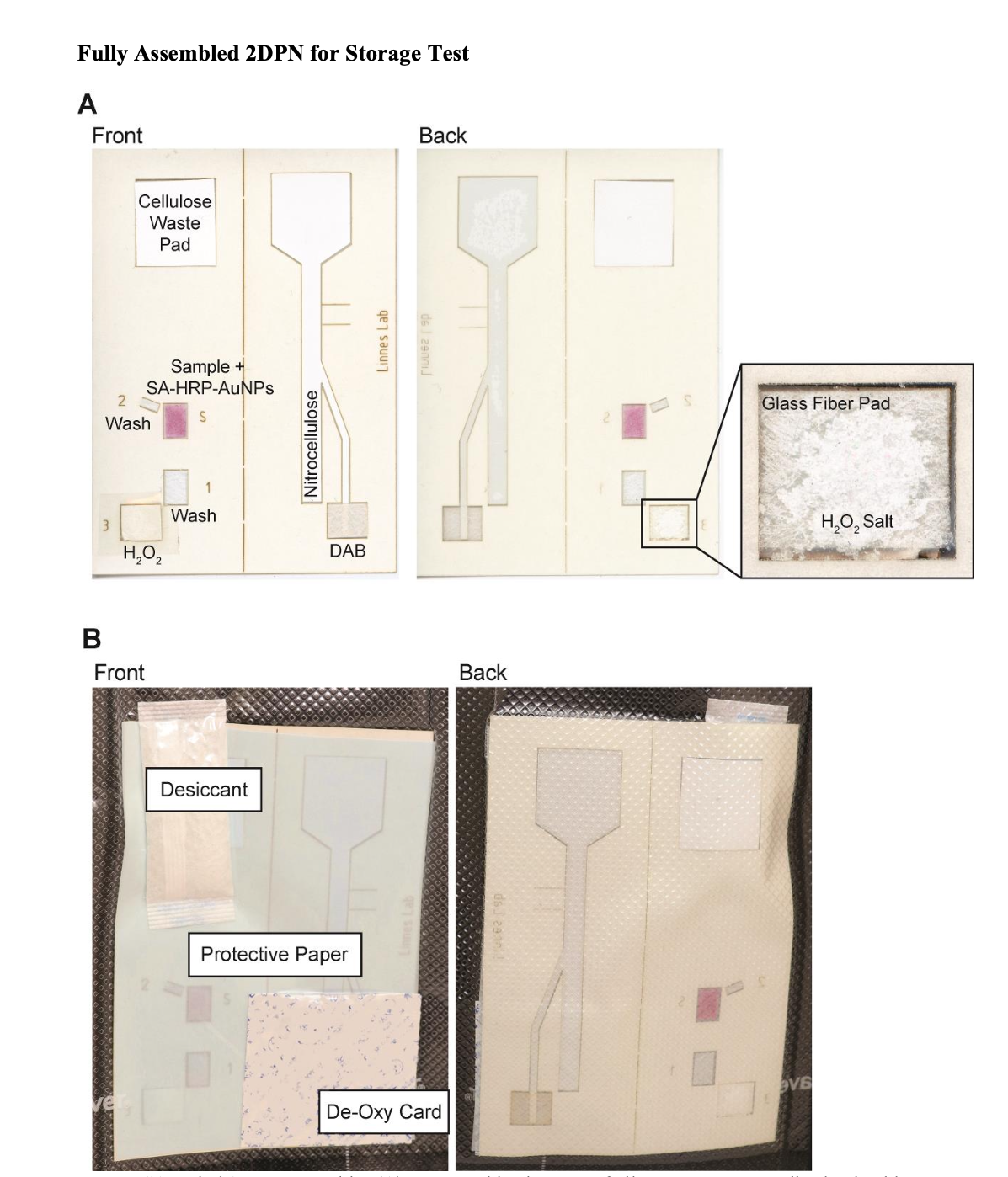Jacqueline Linnes Pioneers Affordable Healthcare Diagnostics with 2D Paper Network
The patent document states, "Providing easy-to-use diagnostics at an affordable price is crucial for successful translation of the device into clinical use."
One of her notable projects involves creating a fully dried two-dimensional paper network (2DPN) or easy and cost-effective detection of low-concentration targets in biological samples like blood and saliva. This tool simplifies testing processes and can be used without complex lab equipment.

Figure S1. Dried 2DPN assembly. (A) Front and back scans of all components on adhesive backing. Enlarged image showing deposit of H2O2 salt on adhesive under glass fiber pad (right). Paper film is removed before use. (B) Front and back images of individually vacuum sealed 2DPN with desiccant, de-oxy card, and blue protective paper for long term storage. Devices were stored away from light.
The 2DPN relies on clever fluid control in the device to first bind targets to nanoparticles and test lines to create a visual signal just like a regular rapid paper test (e.g. for COVID-19/pregnancy), but then enables more sensitive detection by enhancing the signal intensity so that low concentration targets are automatically detected. The invention enables the user to simply add their sample and the liquid buffer and then fold over the device for the multi-step process to proceed automatically, producing a visual signal to indicate a match. The device’s simplicity and effectiveness make it an accessible solution for diagnosing diseases in underserved areas.
Critical to the testing process, Professor Linnes also implemented dry reagent storage on the 2DPN which allows the test to be implemented in regions of the world without refrigeration.
Her research emphasizes the importance of affordability in healthcare, with the raw materials for each 2DPN device costing just $1.82. This cost-effective design allows the technology to reach a global audience, particularly in areas with limited medical resources.
By combining the 2DPN test with Linnes is helping to create diagnostic tools that are not only affordable but also easy to use and highly effective. Her work has the potential to bring life-saving technology to communities that need it most, improving healthcare access for all.
Linnes is an assistant professor of Biomedical Engineering Her research interests include point-of-care diagnostics for global health, pathogen detection and evaluation of therapeutic efficacy, miniaturization of molecular bioassays, rapid prototyping and low-cost health technologies and microfluidics and paper-based diagnostics. To learn more about her research visit https://engineering.purdue.edu/LinnesLab.
Congratulations to all Purdue University researchers across all campuses and academic disciplines, who received a patent on their intellectual property from the U.S. Patent and Trademark Office in September.
Most of these innovations are available to license and bring to market. Visit the Purdue Innovates Office of Technology Commercialization’s website to learn more about these and other available innovations.
Source: Purdue Research Foundation
Read more about the Fully Dried Two-Dimensional Paper Network for Enzymatically Enhanced Detectection of Nucleic Acid Amplicons

